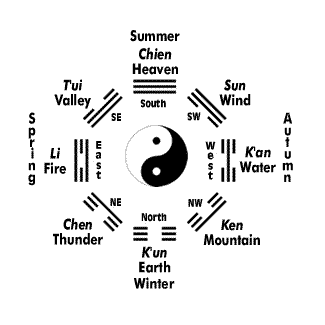
Some of you may know that I started life as something of a sinophile. From a young age I was obsessed with things Chinese, and my second (aborted) academic career was in the study of Chinese language and culture. To that end I abandoned my formal studies and ran away to Taiwan to learn from the source. It was a fascinating time, but oh how I wish I'd stuck to actually earning my degree way back then....oh well, live and learn.
So I have, for a very long time, been interested in Chinese religion, particularly in the folk religion of Chinese communities overseas. I once had a few dozen different versions of the Tao Te Ching, but somewhere along the way I must have decided that I no longer needed them, and dispersed them who knows where. Which is a shame because I have found myself increasingly drawn to the enigmatic wisdom of Lao Tzu in the past few weeks, and now have very little in my library.
It's interesting how particular ideas come in and out of fashion, but I have noticed that the Tao Te Ching has experienced something of a resurgence in popular interest recently. Both Wayne Dyer and Byron Katie have written books on it, and I've even seen young people clutching copies of it on the train.
While I was in the wonderful Kinokuniya in the Siam Paragon in Bangkok (surely Asia's best and most reasonably priced bookstore?) I picked up a couple of books on Taoism and I have been immersed in them ever since. The one that has really grabbed me is James Miller's Daoism - though why he insists on the awkward pinyin romanisation is beyond me. I'm normally a champion of pinyin, but I would suggest that a word like "Taoism" is by now well and truly a part of the English language (as is Lao Tzu), and a precious insistence on "standard" romanisation serves only to confuse the lay reader.
That small criticism aside, Miller's book is fascinating and clearly set out, and I have found it invaluable to my deepening understanding of the Taoist tradition.
Taoism is, of course, just about as obscure and enigmatic a spiritual tradition as you could imagine, and throughout East Asia Taoists generally receive a bum rap, characterised as exploitative magicians and charlatans.
But I think that it is the extremely ambiguous nature of the Tao Te Ching itself that is the secret of its popularity in the West, particularly now. People are looking, I would suggest for a more profound understanding of life, nature and the universe, but aren't looking to be preached at. The more mystical Taoist tradition proves enormously attractive, with it's wonderfully impenetrable message and its total lack of proscription.
Comments